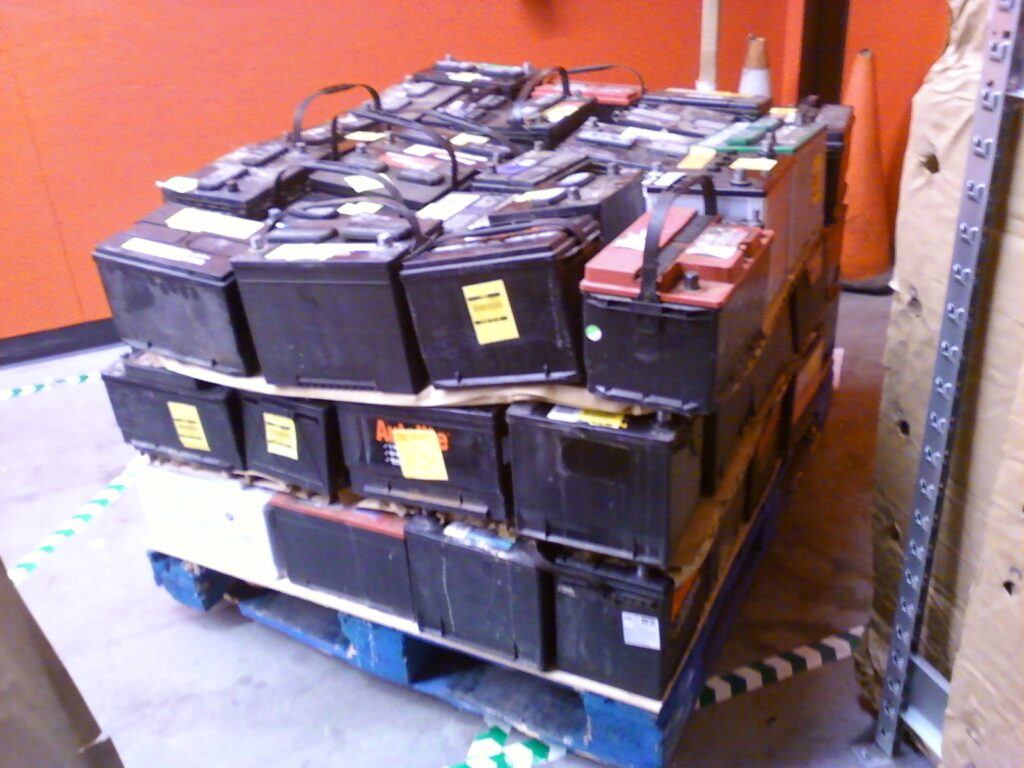Battery Recycling: In today’s world, where sustainability is paramount, understanding how battery recycling is done is crucial. As we rely more on batteries for our everyday devices, from smartphones to electric vehicles, the need to recycle them responsibly becomes increasingly significant.
Battery recycling is a multifaceted process that begins with the collection of used batteries from diverse sources, ranging from households to electronic waste recycling centers. Once collected, batteries undergo meticulous sorting based on their chemistry and size, ensuring that each type is treated appropriately. Following sorting, batteries are discharged to eliminate any remaining charge, enhancing safety during subsequent processing.
The batteries are then mechanically shredded to break them down into smaller components, facilitating the separation of materials such as metals, plastics, and electrolytes. These materials undergo further chemical processing, where they are purified and prepared for reuse in manufacturing new batteries or other products.
This comprehensive recycling process not only conserves valuable resources like lithium and cobalt but also reduces energy consumption and greenhouse gas emissions compared to extracting raw materials. Additionally, battery recycle presents economic opportunities by creating jobs and stimulating growth in the recycling industry. Overall, embracing battery recycling is crucial for sustainable waste management and environmental conservation, contributing to a cleaner and greener future for generations to come.
The Importance of Battery Recycling
Battery recycle plays a vital role in environmental conservation. By recycling batteries, we prevent hazardous materials from ending up in landfills, where they can leach harmful chemicals into the soil and water, posing risks to human health and the ecosystem.
The Process of Battery Recycling
- Collection: The first step in battery recycling involves collecting used batteries from various sources, including households, businesses, and electronic waste recycling centers.
- Sorting: Once collected, batteries are sorted based on their chemistry and size. This step is essential as different types of batteries require different recycling processes.
- Discharge: Before processing, batteries are discharged to ensure safety and efficiency during recycling. This step involves removing any remaining charge from the batteries.
- Breaking down: Next, batteries undergo mechanical shredding to break them down into smaller pieces. This process facilitates the separation of different components for recycling.
- Chemical processing: After shredding, batteries are subjected to chemical processes to separate materials such as metals, plastics, and electrolytes. These materials are then purified and prepared for reuse in manufacturing new batteries or other products.
Benefits of Battery Recycling
- Resource Conservation: Recycling batteries helps conserve valuable resources like lithium, cobalt, and nickel, reducing the need for mining and extraction.
- Energy Savings: Recycling consumes less energy compared to extracting raw materials, leading to reduced greenhouse gas emissions and energy consumption.
- Economic Opportunities: Battery recycling creates jobs and stimulates economic growth in the recycling industry while reducing dependence on imported raw materials.
In conclusion, battery recycling is a crucial aspect of sustainable waste management. By understanding the process and importance of battery recycling, we can contribute to environmental conservation efforts and pave the way for a cleaner, greener future. Let’s embrace battery recycling as a responsible choice for preserving our planet for future generations.


